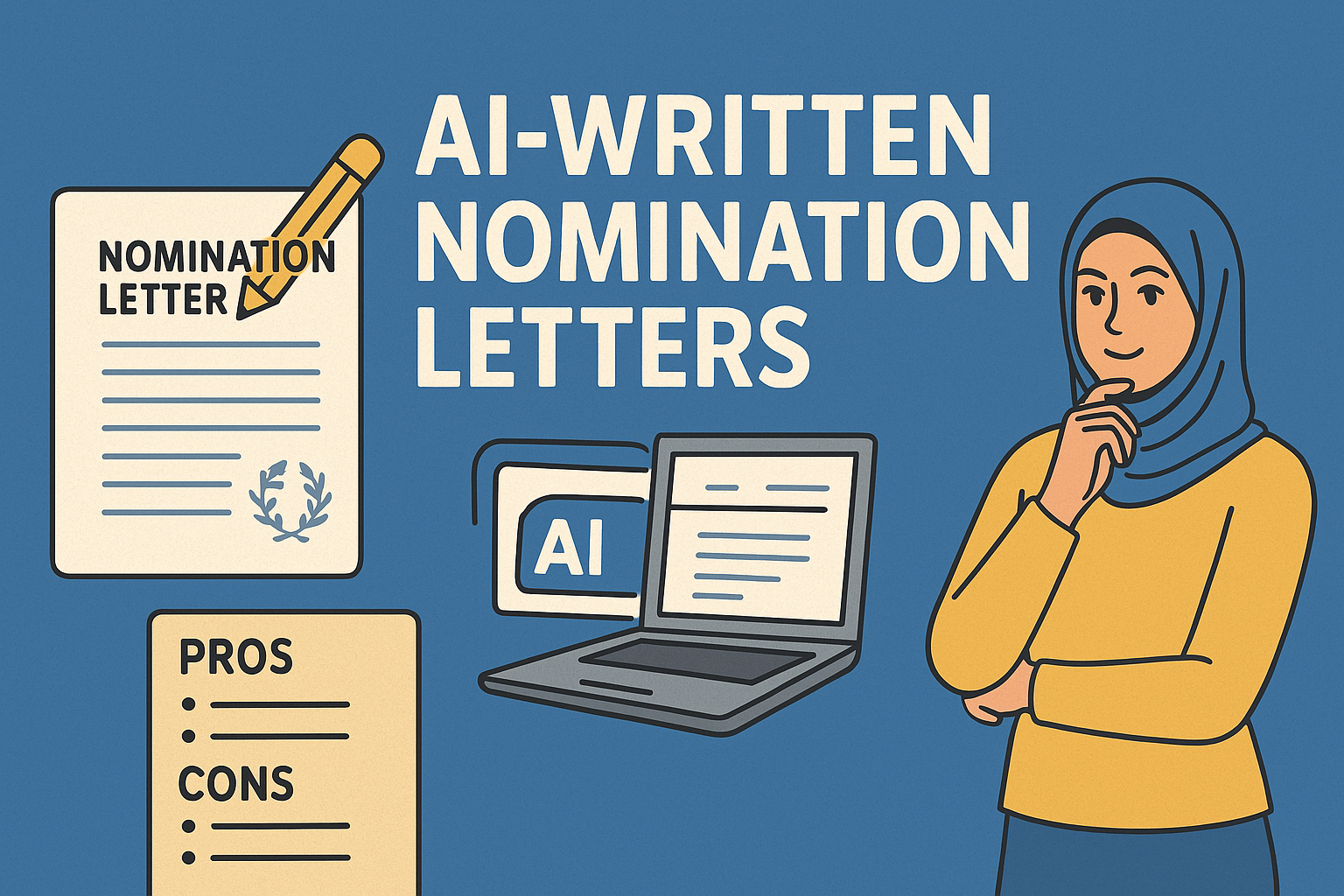AI writing tools are increasingly being used for creating formal documents, including nomination letters. These letters play a key role in recommending individuals for awards, promotions, or recognition. This article explains why people are turning to AI for help, how these tools work, what to consider before using them, and whether they’re the right choice for your writing needs.
If you are short on time or unsure how to begin, using an AI write nomination letter 500 words tool can offer a strong starting point. With a clear outline and suggested phrases, it becomes easier to present a compelling case for your nominee.
What Is a Nomination Letter?
A nomination letter is a written recommendation that supports a candidate for an award, job, or official role. It typically includes the nominee’s achievements, qualifications, and character, supported by real examples or experiences.
Common Uses of Nomination Letters
- School or college awards
- Employee promotions or recognitions
- Community or public service awards
- Volunteer acknowledgments
Why People Use AI for Nomination Letters
1. Saves Time
Nomination letters take time to plan and write. Many people use AI tools to speed up this process.
2. Helps with Writing
AI tools suggest wording, fix grammar, and provide structure for users who might struggle with writing.
3. Easy to Customize
Most AI platforms allow users to adjust tone, format, and details according to the award or nominee.
By choosing an AI write nomination letter 500 words tool, users can streamline the writing process and maintain a standard length ideal for most award programs.
Best Tools to Create Nomination Letters
| Tool Name | Features | Cost | Platform |
|---|---|---|---|
| Grammarly | Grammar check, tone suggestions | Free/Paid | Web, Extension |
| QuillBot | Paraphrasing, grammar improvement | Free/Paid | Web |
| Jasper | Templates for letters, marketing content | Paid | Web |
| Copy.ai | Letter drafts, bullet creation | Free/Paid | Web |
Step-by-Step: Writing a Nomination Letter
Key Components
- Introduction: Who you are and why you are writing
- Relationship: How you know the nominee
- Achievements: Specific examples of the nominee’s success
- Closing Statement: Summary and willingness to provide more info
Practical Tips
- Keep it direct and clear
- Use real examples
- Focus on facts, not opinions
- Follow a formal tone
Pros and Cons of AI-Written Nomination Letters
Pros
- Saves effort for those short on time
- Helps non-native speakers write clearly
- Provides a structured starting point
Cons
- May feel impersonal or too generic
- Lacks emotional depth if not edited well
- Risk of over-reliance on templates
Real-Life Scenario
A company executive used AI to prepare a draft for a leadership award nomination. After editing it with their thoughts and examples, the letter received praise for clarity and warmth. This shows AI can be a helpful starting point but should be refined for quality.
Should You Use AI for This?
Yes—if used carefully. AI tools are not replacements for your insights. They can support you, especially in organizing thoughts or checking grammar, but a great nomination letter still needs your human touch.
Many professionals who use AI write nomination letter 500 words tools find that with a little revision, these letters can meet formal expectations and still include personal touches.
My Viewpoint
I believe AI is helpful when used responsibly. It’s best to treat these tools as assistants, not authors. A well-written nomination letter still depends on your unique relationship with the nominee. Add personal stories, experiences, and reasons that only you can provide.
Conclusion
AI tools make it easier to draft nomination letters by saving time and offering structure. But they can’t replace the personal connection, sincerity, and thoughtful details that make a letter stand out. Use AI to support your writing, but always review, revise, and personalize it before submission.



